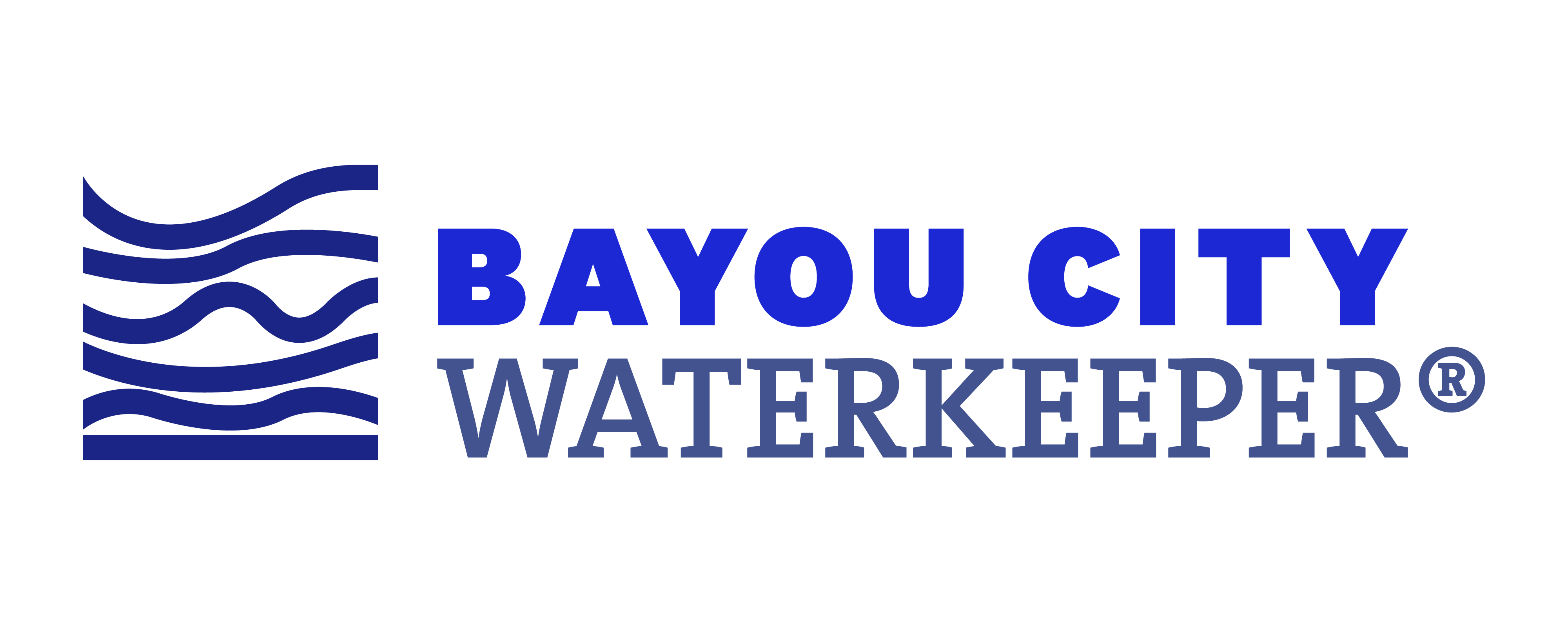Tomorrow, Bayou City Waterkeeper will urge the City to adopt a Community Engagement Plan as part of its wastewater consent decree with the EPA, on which the City Council will vote this Wednesday morning.
A copy of the Community Engagement Plan and related letter are reproduced below and available for download here.
***
Re: Adopt a Community Engagement Plan to Supplement EPA’s Consent Decree
Bayou City Waterkeeper thanks Mayor Turner and the City Council for postponing your vote on the EPA wastewater consent decree after it was released to the public last Tuesday.
While a week allowed our organization a chance to review and begin to understand the decree, a week is not enough to minimally engage the residents of Houston about the way the consent decree will impact their lives—from fixing sewage pollution in neighborhoods across Houston to explaining the need for rate increases across the city.
Our city, unlike countless others engaged in similar consent decree processes, neglected to engage the public in drafting the consent decree. To fix that moving forward, we urge you to:
- Engage residents in important infrastructure decisions moving forward by adopting the attached Community Engagement Plan as Appendix H to the consent decree.
- Offset the city’s failure to give the public time to review the consent decree by agreeing to push the EPA to extend the current default 30-day comment period to 90 days and hold public meetings on the consent decree in the communities identified in Appendix C to the consent decree.
The enclosed Community Engagement Plan is made up of two parts:
1. Public outreach.
a. Website for public communication. The consent decree already requires the city to set up a website to serve as a single repository for all documents relating to the consent decree, including the decree and its appendices, the reports and plans required to be submitted to the EPA under the consent decree, and sanitary sewer overflow data. See Consent Decree ¶ 59.
Under the proposed Community Engagement Plan, this website also will include: a public-facing executive summary and FAQs that explain the consent decree in basic terms; all public notices and reports relating to the consent decree or SSOs; information about rate increases and what mechanisms exist to help low-income residents offset these rates; information about how to report a sanitary sewer overflow; and updates about projects undertaken to comply with the consent decree, including an easy-to-understand interactive map of those projects.
To illustrate, the City of Atlanta, Louisville’s Municipal Sewer District, and the Washington, D.C. Suburbs’ Sewer District each have websites associated with their respective consent decrees; these may offer models for Houston to follow and adapt to its own consent decree process.
b. Annual State of Wastewater Infrastructure address and report. The Public Works Department will host an annual meeting to update the public on the state of wastewater infrastructure and the city’s progress in complying with the consent decree.
The address and report will include easy-to-understand metrics about the city’s progress in completing projects under the consent decree and reducing sanitary sewer overflows, as well as information about where the city has fallen short. The meeting will be broadcast through a recorded, live webinar, so community members unable to attend in person can access the information conveniently. The Mayor will be required to attend.
For example, Baltimore’s modified consent decree (p. 59 of PDF, ¶ 28(a)) requires it to hold annual forums to “inform the public of work achieved under the Consent Decree in the prior 12-month period… to facilitate community engagement.”
c. Utility bill customer communications and surveys. The city will communicate with utility customers about the implementation of the consent decree as appropriate through mailers in customer utility bills. These mailers would supplement the information being made available online in an effort to reach those customers without internet access. The city will make anonymous surveys available for the purposes of collecting customer feedback.
2. Community Wastewater Committee. The city will establish a committee, made up of community-based organizations, residents, academics, and members of city government, which will meet quarterly and liaison with community groups and the Public Works Department about the city’s ongoing compliance with the consent decree and Clean Water Act. The Public Works Department will update this committee on the city’s compliance with the consent decree.
The committee will give the city input about how to address community concerns, particularly those that go beyond the consent decree’s terms, including recommendations for offsetting rates, additional wastewater improvements needed to reduce system failures, the use of green infrastructure; and potential funding sources for additional wastewater improvements and green infrastructure projects.
For example, the Washington D.C. Suburbs Sewer District’s first amended consent decree describes the efforts already undertaken by a stakeholder advisory panel on p. 315 of the PDF; Cincinnati’s consent decree contemplates the creation of a community steering committee on p. 119 of PDF.
As already reflected by the examples provided above, engaging the community in this manner has serious precedent—and in fact, is typical of a consent decree process such as this one. Informing the proposed Community Engagement Plan are approaches taken by countless other cities, counties, and sewage districts, including those that incorporated public participation into their consent decrees entered with the EPA to address their own sanitary or combined sewer problems.
Examples include:
- Washington DC Suburbs’ Sewage District (detailing public participation efforts) (p. 254 of PDF)
- Cincinnati (outlining public outreach plan and composition and activities of the steering committee) (p. 119 of PDF)
- Baltimore (requiring annual public forums) (p. 59 of PDF, ¶ 28(a))
- Delaware County (requiring development of a public participation plan within three months of lodging of the consent decree) (p. 22 of PDF)
- Metropolitan Water Reclamation District of Greater Chicago (requiring public participation in the development of green infrastructure) (p. 105 of PDF)
- Metropolitan St. Louis Sewer District (detailing required public outreach efforts) (p. 46-47 of PDF)
Other strong examples of community engagement in the consent decree process include Atlanta, Chattanooga, Louisville, and Nashville.
If you do not adopt the Community Engagement Plan to the consent decree, you will elect to continue excluding the public from this process and distinguish Houston from the other cities across the United States that have entered similar decrees. We implore you: Do not leave our city with a “Houston-unique” legacy of our elected officials excluding residents from large-scale decisions that will impact our lives for more than a generation.
We urge the Mayor and this Council to (1) approve and adopt this Community Engagement Plan at the same time that it votes on the consent decree and (2) ask the EPA to extend the current default 30-day comment period to 90 days and hold public hearings in the communities around the areas identified in Appendix C.
A copy of this letter will be provided to the more than 50 individuals and organizations that, through letters and public comments, advocated for public participation last week. We look forward to addressing you in the public comments session tomorrow.
Sincerely,

Jordan Macha
Executive Director & Waterkeeper
APPENDIX H
Community Engagement Plan
I. Introduction
Community engagement will be an integral part of the process for complying with the terms of the consent decree. As set out below, community engagement will have two parts: (1) the creation and support of an independent, community-based committee to inform the City’s compliance with the consent decree and (2) public outreach.
II. Community Wastewater Committee
The purpose of the Community Wastewater Committee will be to provide guidance to the City of Houston throughout the consent decree process.
A. Membership
The Community Wastewater Committee will be composed of:
- Representatives of local non-profit organizations whose missions focus on environmental, equity, and/or civic engagement in the greater Houston area, such as Bayou City Waterkeeper.
- At least one resident of, or representative of civic organizations active in, the areas identified in Appendix C.
- Professors or postdoctoral fellows with a background in wastewater infrastructure, civil or environmental engineering, or urban planning or similar area of expertise affiliated with a college or university in the greater Houston area.
- The City of Houston’s Director of Public Works or their representative.
- The Chair of the City Council’s Technology, Transportation, and Infrastructure Committee or their representative.
Upon convening, this Committee may establish rules of governance, including rules that allow for representatives of additional organizations, neighborhoods, or stakeholders. Although they will not be members of the Community Wastewater Committee, the TCEQ and EPA will be invited to attend all Community Wastewater Committee meetings.
B. Operations
The City of Houston anticipates that the Community Wastewater Committee will provide advice to the City of Houston through an open, collaborative, consensus-based process, without formal votes or need for excessive procedure.
Although the City of Houston hopes that the Community Wastewater Committee will work toward a consensus regarding the appropriate approach for the City of Houston to take in addressing various SSO issues, Community Wastewater Committee members will be encouraged to offer their independent views on issues arising in the process of complying with the consent decree and Clean Water Act, even when those views might diverge from those of the rest of the Committee. The City of Houston also expects that the Community Wastewater Committee’s focus will be on “big picture” issues relating to the City of Houston’s SSOs. The City of Houston does not expect that the Community Wastewater Committee will provide detailed advice regarding the technical minutiae of consent decree compliance. The City of Houston and its independent consultants can provide assistance regarding the details of technical studies and reports.
At a minimum, the Community Wastewater Committee will provide high-level guidance to the City of Houston and its Public Works Department in complying with the terms of the consent decree, including all planning and reporting required under the consent decree, and the Clean Water Act. The Committee also will give Public Works recommendations about how to address community concerns, including recommendations for offsetting rate increases, additional wastewater improvements needed to reduce system failures, opportunities for the development of green infrastructure projects; and potential funding sources for additional wastewater improvements and green infrastructure projects.
The Public Works Department will update the Committee on the city’s compliance with the consent decree.
At the outset of the process, the City of Houston will convene the Community Wastewater Committee within three months of the Effective Date. At its initial session, the City of Houston will present to the Committee a “road map” of the consent decree process. At a minimum, this initial session will cover: 1) the history of the City of Houston’s efforts to address its overflow problems; 2) the regulatory context in which the consent decree has arisen; 3) the possible causes and contributing factors that could be leading to the continued overflow problems; 4) a detailed explanation of the planned Early Action Projects; and 5) a brief explanation of other planned projects and deliverables under the consent decree. In the latter portion of this session, the City of Houston would take questions and comments from the Community Wastewater Committee members regarding its plan for compliance with the consent decree.
III. Public Outreach
A. Information Packet, Outreach, and Initial Workshop
The first step in the public outreach process will be an effort to educate the public generally about SSO issues and the range of alternatives available for addressing SSOs. Among the topics that would be covered in the public education process are the following: 1) the history of the City of Houston’s efforts to reduce sanitary sewer overflows; 2) the regulatory context in which the consent decree has arisen; 3) the possible causes and contributing factors that could be leading to the continued overflow problems; 4) an explanation of the planned Early Action Projects; 5) a brief explanation of other planned projects and deliverables under the consent decree; 6) opportunities for learning more about the City of Houston’s progress in reducing SSOs and complying with the consent decree; 7) information about offsetting rate increases; and 8) the role of the Community Wastewater Committee.
Public education will be achieved through a variety of media. Press releases distributed to print, electronic, and broadcast outlets will introduce the SSO issue and invite citizens to contact the City of Houston by letter, phone, or email to request an information packet on the consent decree. This will also be available on the website containing all material relevant to the consent decree. The press release will also announce the date and time for an initial consent decree public workshop. The information packet will contain a short overview of the City’s overflow program and the final consent decree as it relates to SSOs. The packet will also contain a questionnaire that will solicit citizens’ views regarding SSO issues. The packet also will invite recipients to visit the City of Houston’s consent decree website and/or attend the initial public workshop described below.
The information packet will also be mailed to community leaders, including representatives from the Super Neighborhood Alliance, watershed associations (e.g., Brays Bayou Association), organizations who have previously participated and/or have submitted letters related to the consent decree, and other city-identified organizations and non-profits who would benefit from participating in this process. Additionally, copies of the packet will be made available at local libraries, as well as at Public Works information booths at various public events, such as Earth Day.
As mentioned above, the City of Houston also will hold an initial public workshop as part of the Public Education phase of the Public Outreach program. The location and time of the initial public workshop will be chosen to facilitate attendance by the public, particularly those in the communities surrounding the areas identified in Appendix C. This initial workshop will seek to educate members of the public about the issues outlined above: 1) the history of the City of Houston’s efforts to reduce sanitary sewer overflows; 2) the regulatory context in which the consent decree has arisen; 3) the possible causes and contributing factors that could be leading to the continued overflow problems; 4) Early Action Projects; 5) other planned projects and deliverables under the consent decree; 6) opportunities for learning more about the City of Houston’s progress in reducing SSOs and complying with the consent decree; 7) information about offsetting rate increases; and, 8) the role of the Community Wastewater Committee.
Technical issues and remedial alternatives will be presented in a simple, concise manner that is understandable to laypersons. The presentations will address progress to date on the consent decree, as well as the status of ongoing and planned consent decree activities. Charts and maps explaining in layperson’s terms various SSO issues will be on display for viewing by the public at the workshop site before, during, and after the workshop session.
B. Public Education & Communication
a. Website
The City of Houston will set up a website that will serve as a repository for all documents relating to the consent decree, including the consent decree and its appendices, the reports and plans required to be submitted to the EPA under the consent decree, and sanitary sewer overflow data.
This website also will include a public-facing executive summary and FAQs, in English, Spanish, Vietnamese, and other languages identified by the Community Wastewater Committee, that explain the consent decree in basic terms; information about rate increases and what mechanisms exist to help low-income residents offset or manage these rates; information about how to report a sanitary sewer overflow; and updates about projects undertaken to comply with the consent decree, including an easy-to-understand interactive map of those projects.
Information posted to the website will be developed with input from the Community Wastewater Committee.
b. State of the Wastewater Address & Report
The Public Works Department will host an annual meeting to update the public on the state of wastewater infrastructure and the city’s progress in complying with the consent decree. The address and report will include easy-to-understand metrics about the city’s progress in completing projects under the consent decree and reducing sanitary sewer overflows, as well as information about where the city has fallen short. The meeting will be broadcast through a recorded, live webinar, so community members unable to attend in person can access the information conveniently.
The Mayor will be required to attend.
C. Utility Bill Customer Communications and Surveys
The City of Houston will communicate with utility customers about the implementation of the consent decree as appropriate through mailers in customer utility bills. These mailers would supplement the information being made available online in an effort to reach those customers without internet access. The City of Houston will make anonymous surveys available for the purposes of collecting customer feedback.

